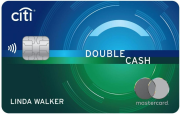The content on this page is accurate as of the posting date; however, some of the offers mentioned may have expired.

American consumers have been recently cheered up by the federal agencies planning to introduce stricter rules for credit card companies. The new regulations proposed by the Federal Reserve and other federal agencies are going to block unfair practices like hidden fees, excessive interest rate raising and other ploys.
Most credit card holders have come across unfair charging or aggressive anti-delinquency politics of the banks. Many of them display dubious compliance with the law, but banks have been widely practicing them until now.
Today, the credit industry suffering from recession faces changes that give additional benefits for consumers. Which of the following bank's tricks have you experienced? Read about the most wide-spread of them and the ways the Fed is going to fight these practices.
- Using unfair methods of computing balances: The Fed is about to prohibit methods like "two-cycle billing" which let the banks charge interest even in a month when the customer carries zero balance.
- Making misleading credit card offers: Banks will have to set out the features of the credit deal in a comprehensive way and indicate the requirements for the interest rate and credit limit.
- Fixing unfair time limitations on payments: lenders will be obliged to fix reasonable periods of time, to make payments.
These and a number of other unfair practices will be banned in case of successful voting in July. However, no one can say for sure if all of the limitations proposed by the Fed will be approved. The issues in question have too strong opponents among credit card and mortgage companies. It is no secret that a large part of banks' revenues are penalty charges, not issuing cash back credit cards. According to the latest reports, credit card issuers earned nearly $20 billion in penalty fees only!
Most consumers, especially bad credit card holders, will find the new legislation to be a great relief, especially under the circumstances of recession. However, there is a quite a number of objections and critical remarks concerning the matter. In general, they are the following ideas. The above mentioned credit card reform will help millions of consumers use fair credit card services and avoid excessive spending on unnecessary charges. But there are other reform proposals suggesting even stricter limitations for banking industry, that the widely discussed Fed credit card rules. One of them is Credit Card Bill of Rights by Carolyn B. Maloney, who insists on more severe measures to secure consumers from creditors' abuse. For example, the Bill provides for the 'fixed rate' being included in the card offer in case the rate is never going to be changed.
Opponents of the Fed's legislative proposal are, obviously, credit card companies and other lenders who consider the forthcoming limitations as a grave intervention in the credit market. They predict the rise of prices in the market of loans and credit cards, adding that consumers are going to have poorer choice of credit card options if the law will be approved.
The new regulations can be completed by the end of the year, similar proposals being discussed in both houses of Congress.





